Do you feel anxious thinking about death and dying? Wondering what you will need or want during the end? Thinking who will grieve when you die?
Whether you are confronting the end of your own life or the loss of a loved one, death is a certainty of life that everyone will face. Even so, knowing that it’s inevitable doesn’t mean you’ll feel prepared for dealing with death and the grief that follows.
A paradox of living is that healthy aging and increased longevity mean you’ll have more experiences with death throughout your life.1 As we age, so too do the people around us. Over time, many of the people that we know and care about will develop chronic or terminal illnesses. Some of them will die during our lifetimes.
The consequence of living longer is that we will continue to lose friends and loved ones to accidents, illnesses, and, as we reach our later years, simply “old age.”
While death is a natural part of life and an unavoidable consequence of aging, that doesn’t mean you won’t be deeply affected by it. In fact, ongoing exposure to death is one reason depression is common in older adults.
However, knowing that death will eventually touch your life in some way means you can be proactive about learning to cope with the dying and grieving process. While you may not be able to predict how it will feel to experience grief (for your own life or someone else’s), having a support system in place and the skills necessary to care for your mental health will give you a solid foundation to work from.
Feelings About Death and Dying
Some people seem to be inherently more at peace with death; whether premature or at the end of a long life.
Others find the dying process difficult to face no matter how old they get or how often they experience the death of a loved one.
While your unique personality and experiences influence how you think and feel about death, there are also other factors. For example, the culture you were raised in, as well as the one you are living in at any given time, will shape your beliefs and perceptions of death.
The way other people in your life perceive and react to grief will also affect your feelings.
Your perceptions may also change as you have more experiences with death; this may be felt most strongly if and when your own life is threatened, such as by a serious injury or illness.
When we talk about coping with death and dying, there are several components of the process to consider. In addition to the emotional experience, there are also the spiritual or existential elements, as well as physical aspects of death (especially if we are in the position of confronting our own mortality).
Each component of the dying process requires a different set of tools for coping but having the skills you need to approach each facet individually will come together to help you move through your unique experience of grief.

Related: What Happens After Death?
How To Deal With Death?
Physical Aspects
What death looks and feels like in the body will depend on the underlying cause. How long death takes, whether it causes pain or other symptoms, and even the appearance of the body throughout the process will vary.
Sometimes, the physical process of dying is quick and virtually painless—such as in a sudden accident that causes fatal injury. In other cases, such as cancer, death may be a prolonged process that requires constant care for managing pain.5
While the timeline and experience might be different from one person to the next, the steps in the physiological process of dying are fairly consistent. For death to happen, certain systems in the body need to stop working.
If a person is in a fatal car accident, they may die right away from an injury to vital organs. For example, if the spine and skull are involved, damage to the brain can cause the person to lose consciousness, cut off blood supply to the body, and interrupt communication between the brain and vital organs.
Related: 12 Signs You’re Experiencing Spiritual Death And Rebirth
When someone is dying from a terminal illness, the organ systems of the body will shut down more slowly. They gradually become less aware of what’s happening around them and may start sleeping more.
A person who is dying may begin to eat and drink less or stop taking nourishment at all. The closer death is, the more shallow a person’s breathing becomes, sometimes making a distinct “rattling” sound.
Whether it happens gradually or suddenly, the World Health Organization (WHO) states that clinical death occurs when all vital functions of the body (including brain activity, blood flow, and breathing) have stopped.
End-of-Life Care
Addressing the physical pain and discomfort of death will be a priority. Although it can be difficult to have conversations about end-of-life care, it’s important that you and your loved ones discuss preferences before the time comes.
Interventions like hospice or palliative care are designed to alleviate pain and help someone who is dying be as comfortable as possible during the process. Medicine used to treat pain, induce relaxation and sleep, and treat anxiety is often given, in addition to non-pharmaceutical methods to meet these needs.
Which interventions are chosen, when they are started, and how long they are used will depend on the preferences expressed by the person who is dying, as well as the recommendations of the physicians overseeing their end-of-life care.
If you’re caring for someone who is dying, your experience of the physical part of the process will likely depend on your senses: the things you see, hear, smell, and touch.
For example, if you are gently washing your loved one’s face, you may notice that they appear very pale and their skin feels clammy. If you were to move your loved one to change their bedding, you might notice the bottom side of their body appears discolored, almost like bruising, from where blood is pooling.
A person who is dying sometimes loses control of their bowels and urinary system, which can produce sights, smells, and sounds that you may find difficult to deal with. If the person is conscious when these accidents occur, the physical sensations will likely be uncomfortable or alarming to them.
There are also other sights and smells associated with death that you may be experiencing for the first time. You should know that while these are a natural part of the dying process, it’s also normal for them to make you feel afraid, sad, and even repulsed.
If you are overwhelmed with providing physical care to a loved one who is dying, you may want to hire a compassionate and trained hospice care worker or private hospice nurse to assist your family.
Emotional Aspects
The way you feel about death, whether someone else’s or your own, is unique to you and informed by your experiences and beliefs. Ultimately, there are some common feelings that people experience in the process of death and dying.
The established stages of grief are often referenced, though they needn’t be strictly followed. You might want to think of them as a nonlinear guide or roadmap.9
When someone has reached old age, there are many years of life to reflect on when contemplating death. The process takes time and, as life generally is, will be full of ups and downs.
While people will not necessarily experience the stages of grief in the same order or intensity, there are specific emotions that tend to be associated with death and dying.
Denial and isolation, anger, bargaining, depression, and acceptance are generally accepted to be the core emotional components of the grieving process.10 Some people experience these emotions in order, but it’s also possible for people to revisit stages or spend more time in one stage than another.
Related: 9 Truths Only Death Can Teach Us About Life
1. Denial
The initial stage of grief is considered denial, wherein a person struggles or refuses to comprehend that a loved one is dying. They may go to great lengths to ignore the reality of the situation or even discuss it with their loved ones or doctors. The denial phase of grief is often an immediate reaction, and a person begins to move through it once they have had time to process the information.
2. Anger

When a person reaches the anger stage, they may experience and express these feelings inwardly, outwardly, or both. They may be angry because they feel they aren’t ready to die or that they don’t “deserve” it.
They may process these angry feelings inwardly and prefer to avoid interacting with others. A person may also take their anger out on the people around them including friends, family, and even doctors and nurses.
Related: Dead For 3 Years and No One Notices! – Lessons From The Joyce Vincent Story
3. Bargaining
Eventually, most people move into a stage of bargaining. If they are religious, a person may ask their higher power to save their life. They may pray and promise “to be good” or “better” if only God will spare them.
Conversations with others during the bargaining stage of grief may feature a lot of statements that start with “If only…” These comments may be directed at what a person wishes they could undo about the past (“If only I hadn’t started smoking…”) or focus on the things they are realizing they will miss out on (“If only I could live to see my grandchildren grow up…”).
4. Depression
Most people experience depression at some point in the dying and grieving process, though it may take different forms.11 When someone is dealing with the death of a loved one, a period of mourning is an expected reaction to the loss.
Alternatively, when a person is in the process of dying themselves, the mourning is preemptive. Anticipatory grief can involve more than just the loss of their life; as death gets closer and they become more dependent on others, a person may mourn the loss of their independence and their identity.
Related: The #1 Cause of Chronic Depression and How You Can Turn It Off
5. Acceptance
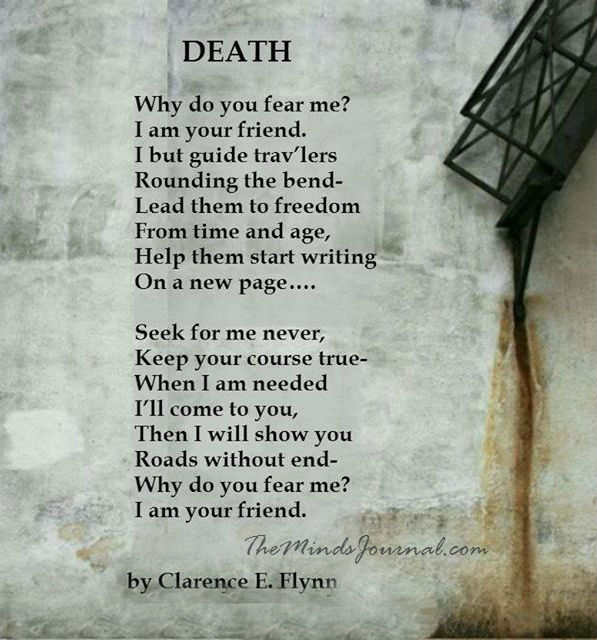
The final stage of grief is acceptance. While it’s usually described as a person being “at peace” with death, that doesn’t necessarily mean it’s an easy stage to be in and that a person will feel relieved or unafraid once they reach it.
In fact, it’s not uncommon for someone in the last stage of grief to feel nothing at all, and the numbness may help people cope with death.12
It can take a long time to reach a stage of acceptance and reaching acceptance doesn’t mean that a person won’t return to a previous stage if their situation changes.
Having a support network of family and friends at each stage of the grieving process can provide guidance and comfort, but it’s also not uncommon to seek professional help when facing a loss.
People commonly turn to grief counseling, support groups, and clergy to help them process and cope with their grief.
Related: The Five Stages Of Grief: Exploring The Kübler-Ross Model
Social Changes
Another emotional aspect of dying is the concept of “social death,” which can start long before a person experiences any physical signs of imminent death.
When someone knows they are likely to die within a specific timeframe, such as after receiving a terminal cancer diagnosis, it inevitably affects their social life.
In some cases, a person withdraws from others. If they are very ill, they may be forced to leave work or school and may lose social connections as a result. They may also isolate themselves from friends and family as they try to “come to terms” with their imminent death and take time to reflect on their lives.
Sometimes, a person who is dying may become isolated not because they are withdrawing, but because the people around them are not sure what to say or do.
Friends and loved ones may find it difficult to acknowledge the reality of death (especially when it reminds them of their own mortality) and might avoid being in a situation that forces them to confront it.
Whether or not a person has a wider network of community support also makes a difference. People living in rural areas or far from their families may not have many social resources and may not be well enough to travel elsewhere.
Similarly, older adults living in long-term care facilities and nursing homes may experience “social death” for years if they rarely have visitors.13 If you are caring for someone who is dying, social support is an important part of caring for yourself throughout the process.
Related: A Day Before Her Death, This 27Yr Old Woman Wrote A Letter, Which Will Change Your Life Forever
Caregiver Stress
If you have never been in a situation where you have had to consider death, you may be overwhelmed by the need to process your feelings about both the loss of your loved one as well as the reminder that you will die someday.
If you have experienced the death of someone close to you in the past, caring for a loved one going through that process may bring back old memories and grief. While the needs of your loved one who is dying may feel demanding at times, remember that your own well-being is still your priority.
If you are emotionally and physically well, you will have the energy, strength, focus, and patience to be fully present with your dying loved one and attend to their needs. Still, it is not easy to deal with a loved one dying, and being their caregiver, so it’s important to also care for yourself and get help.
“One inspirational sentiment about death I keep coming back to is a story about a little boy who passed away. The little boy’s mother said a prayer that went: “Dear Sam, Thank you for the honor of being your mom. We had a lot of fun. I love you. Please pray for us.”
I return to this story because I appreciate this way of thinking about death. I hope that, when faced with the death of a loved one, I will be able to reach this level of peace and understanding. It just seems healthy to me.” — Mark Stibich, PhD
Related: How Stressed Are You? Take This Stress Quiz To Find Out
Spiritual and Existential Aspects
Religious and spiritual needs throughout the dying process will be highly individual, but even someone who has not engaged with religion or spirituality throughout their life may find themselves thinking about these concepts more deeply when they are confronted with death.
When we talk about thinking about life on a bigger level, it’s referred to as existential thinking or, sometimes, an existential crisis. Any major change or trauma, including serious illness or injury, death, and bereavement, can bring up these thoughts and feelings.
The spiritual and existential aspects of the dying and grieving process are natural, but they can also be intense, exhausting, and distressing. A person may feel a sense of desperation or as though time is running out as they race to take stock of their lives and make plans for their death.
They may reflect back on decisions they made in their lives, question their choices, and wrestle with guilt about things that they said or did. They may ask “What if?” and try to imagine how their life might have played out differently.
Depending on their spiritual and religious beliefs, a person may desire to feel closer to their higher power. They may want to attend religious services more often or have a spiritual leader visit them to provide guidance and comfort.
On the other hand, if they are grappling with anger about their death, they may feel distanced from their spiritual center and may not wish to engage with their religious practice. If a person’s religion has traditions for the dying, they may wish to begin taking part in them.
They may also want to discuss how they would like their spiritual life to be reflected throughout the dying process and the period after. The spiritual and existential needs of people who are caring for loved ones who are dying must also be considered.
Just as a person who is dying might seek comfort from religious leaders or texts, those who are caring for them may benefit from reaching out to their spiritual or religious community.
Related: Powerful Advice From a Dying Man
Practical Aspects
Although it might not be foremost on someone’s mind, addressing the practical aspects of death, dying, and grief is an important part of the process. It’s also one that you can plan ahead for.
People often find it difficult to discuss end-of-life plans, living wills, and funeral arrangements, but these are elements of the dying process that you can discuss long before they are needed.
Once you and your loved ones have spoken openly about your preferences, you can involve professionals such as accountants, funeral directors, lawyers, doctors, and other healthcare professionals to ensure that your wishes will be honored.
While the conversation and documentation involved can be overwhelming, and the requirements will depend on where you live, there are many resources available to help you get started. Once the task is done, you’ll hopefully feel reassured that you have what you need to make the process as easy as possible when the time comes.
Setting up a system of friends, neighbors, and community support ensures you are prepared for the time you have left with your loved one. Your mind will likely be far from thoughts of laundry and grocery shopping during this time, but these practical concerns still need to be addressed.
Having someone to help with cleaning and meal prep will allow you to focus your time and energy on being with your loved one in their final days.
Written by: Mark Stibich, PhD Originally appeared on: Verywellmind Republished with permission.
We hope the above article on coping with the death and dying of loved ones will offer the necessary tools to cope with this unavoidable aspect of life. Please share your valuable feedback on how to deal with death and dying in the comments below.
References
- Maxfield, M. and Bevan, A.L., 2019. Aging and coping with mortality: understanding attitudes about aging and age-related differences in coping with death. In Handbook of Terror Management Theory (pp. 391-415). Academic Press.
- Lekalakala-Mokgele, E., 2018. Death and dying: elderly persons’ experiences of grief over the loss of family members. South African Family Practice, 60(5), pp.151-154.
- Cicirelli V. Death Attitudes and the Older Adult. (Tomer A, ed.). Psychology Press; 2000:187-189.
- Kearl MC. Endings. New York: Oxford University Press; 1989:24-34.
- National Institute on Aging. Providing Care and Comfort at the End of Life. Updated May 17, 2017.
- The American Cancer Society medical and editorial content team. What To Expect When A Person With Cancer Is Nearing Death. American Cancer Society. Updated May 10, 2019.
- World Health Organization (WHO), Canadian Blood Services. International Guidelines for the Determination of Death – Phase I. WHO Patient Safety. Published May 2013.
- Wisman, A. and Shrira, I., 2015. The smell of death: evidence that putrescine elicits threat management mechanisms. Frontiers in Psychology, 6, p.1274.
- Harvard Health. Beyond The Five Stages of Grief. Harvard Health Publishing, Harvard Medical School. Published December 2011.
- Kübler-Ross E. On Death and Dying. New York: Simon and Schuster; 2011:37-133. 9781451664447
- Widera EW, Block SD. Managing grief and depression at the end of life. Am Fam Physician. 2012;86:259–264.
- The American Cancer Society medical and editorial content team. Grief and Bereavement. American Cancer Society. Updated May 10, 2019.
- Borgstrom, E., 2017. Social death. QJM: An International Journal of Medicine, 110(1), pp.5-7.


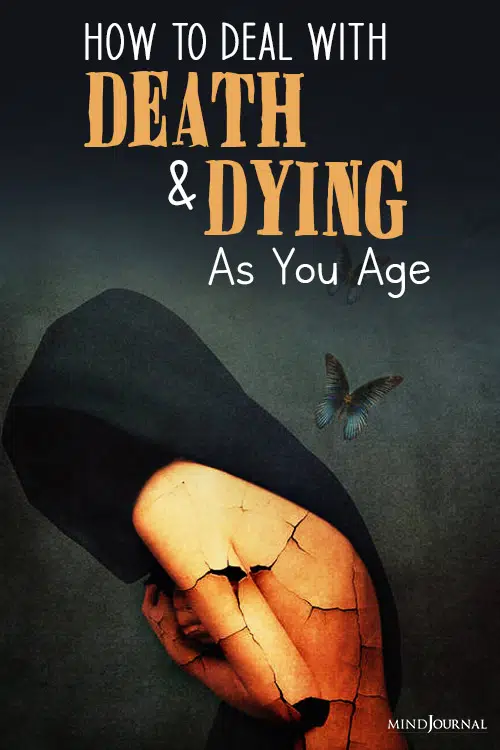
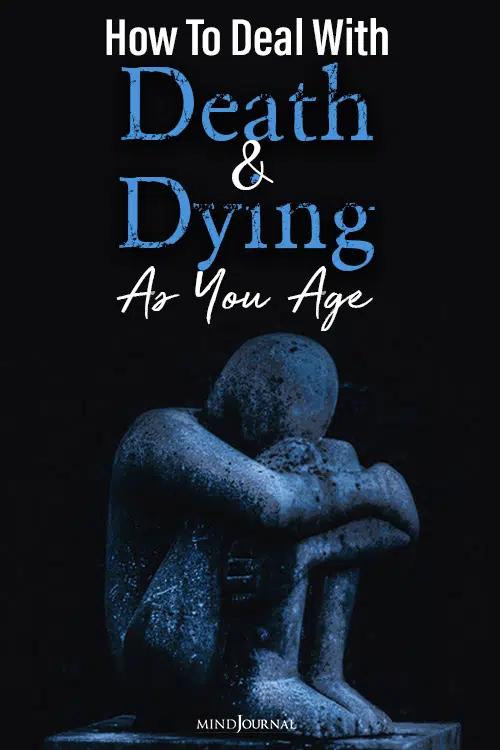

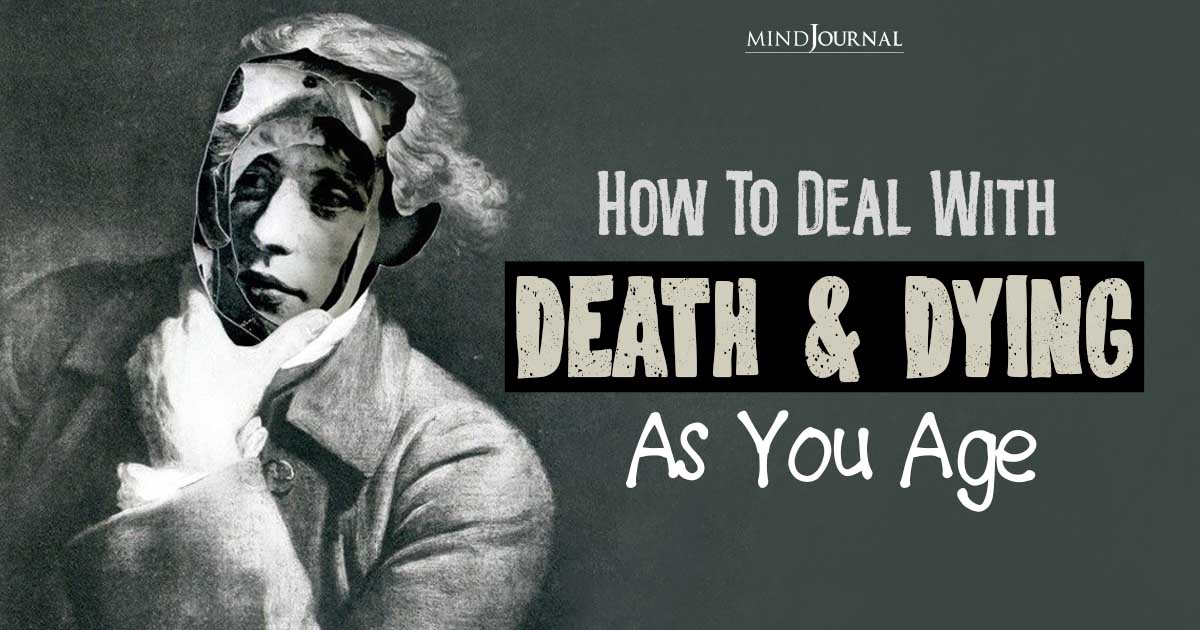


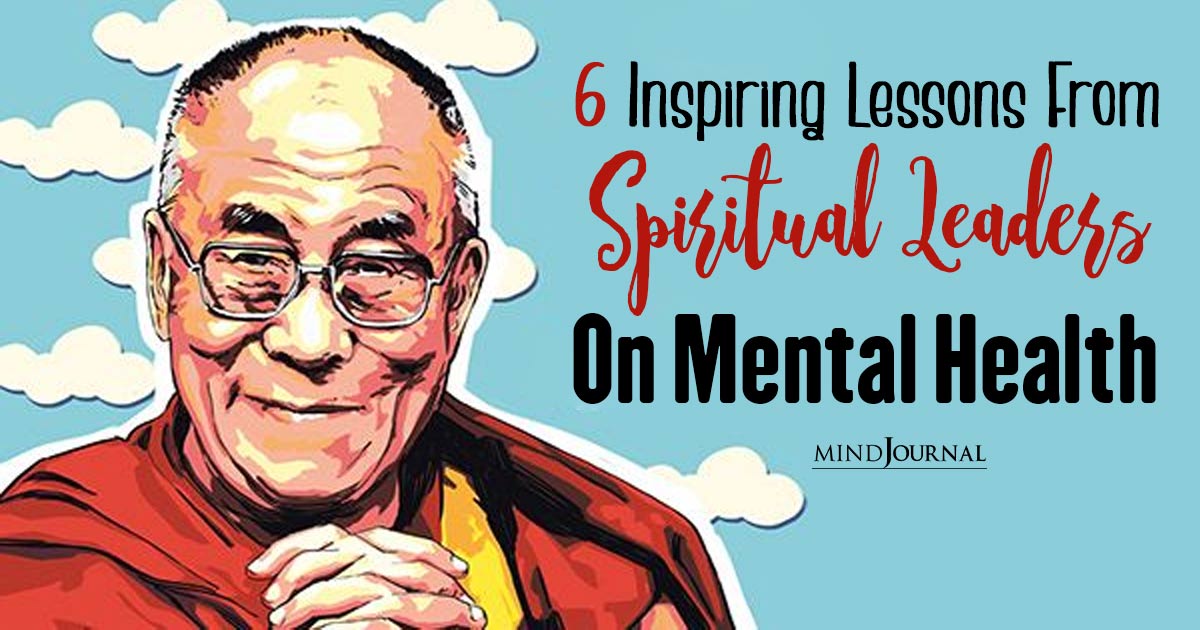




Leave a Reply
You must be logged in to post a comment.